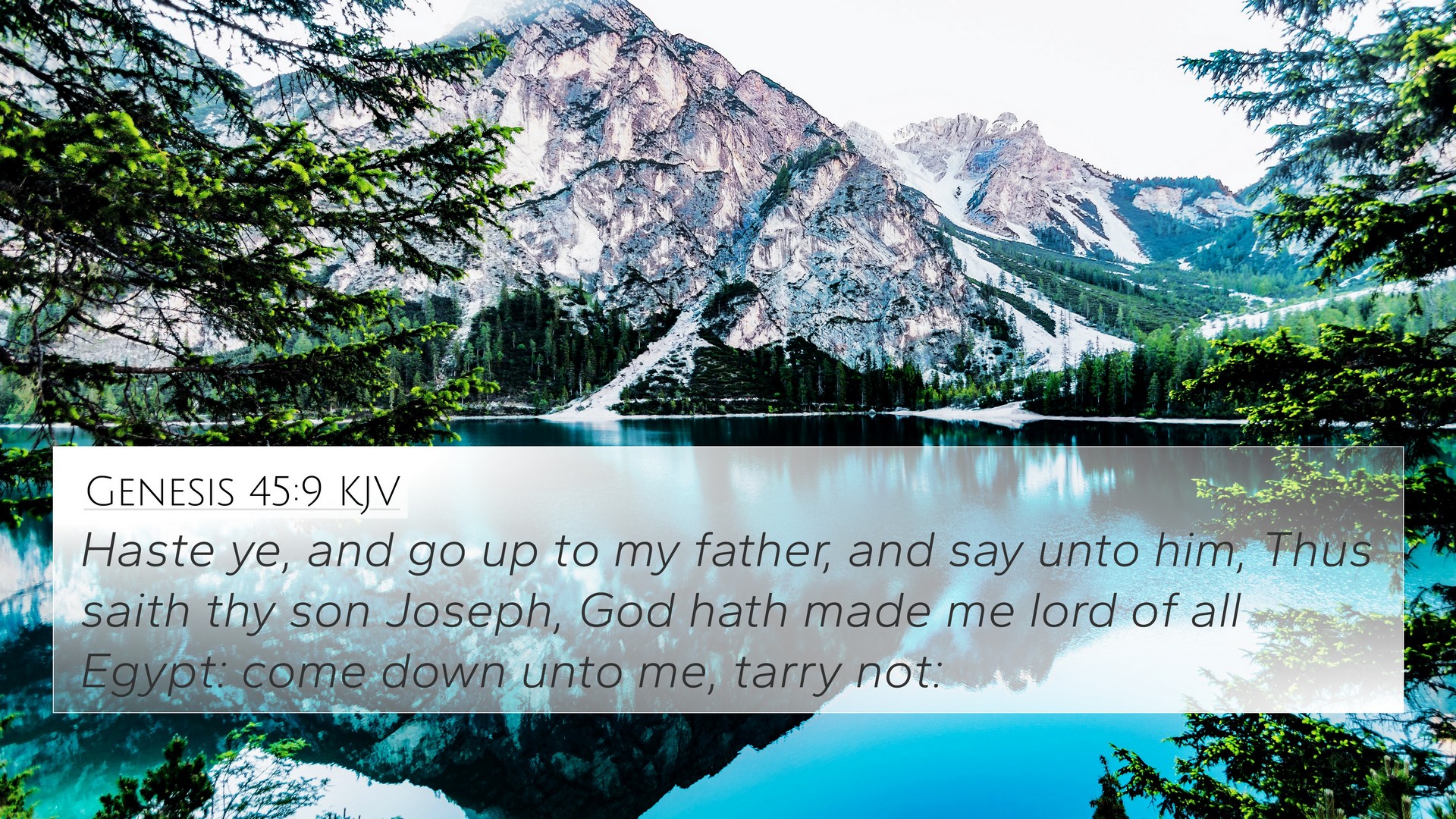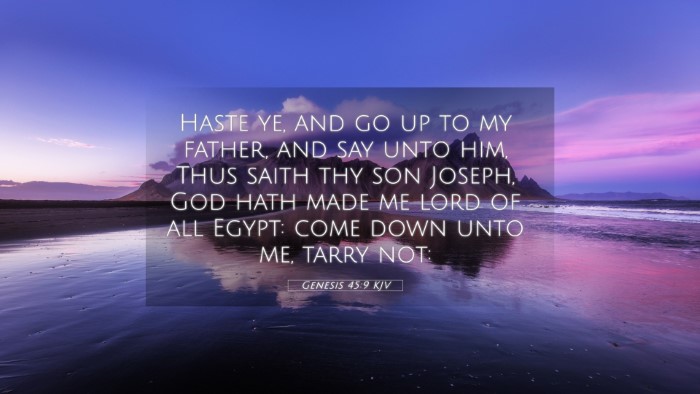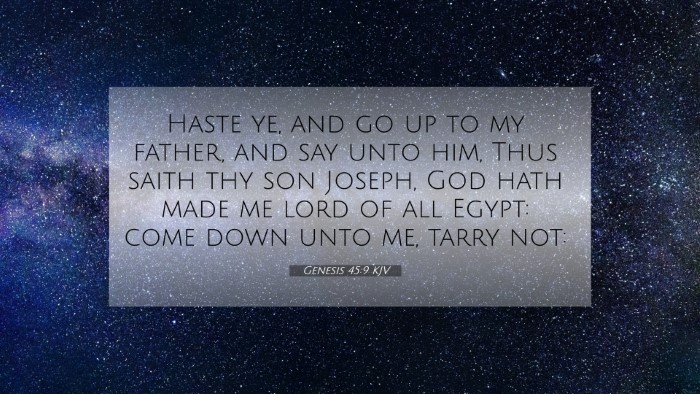Understanding Genesis 45:9
Genesis 45:9 states: "Haste ye, and go up to my father, and say unto him, Thus saith thy son Joseph, God hath made me lord of all Egypt: come down unto me, tarry not." This verse captures a poignant moment where Joseph reveals his identity to his brothers, urging them to bring their father Jacob to Egypt amidst a time of great famine.
Summary of Meaning
In this verse, Joseph's command to his brothers communicates both urgency and the reconciliation theme prominent in the narrative. Joseph, now a powerful figure in Egypt, wishes to reunite with his family and provide for their needs. This act also emphasizes God's sovereignty in guiding Joseph's life from a pit to power, illustrating a profound theological implication that despite human intentions, divine providence prevails.
Insights from Public Domain Commentaries
Matthew Henry's Commentary
Matthew Henry notes that Joseph's revelation of his identity signifies an act of grace towards his brothers after their previous wrongdoing against him. He emphasizes the importance of reconciliation, suggesting that true forgiveness leads to action. Henry points out that Joseph's call to bring Jacob reflects a desire not only to provide for his family but also to restore familial bonds.
Albert Barnes' Notes on the Bible
Albert Barnes highlights the significant transition in Joseph's life—from the despair of being sold into slavery to a position of providential power. He sees the urgency in Joseph's words as indicative of the imminent danger posed by the famine, as well as a heartfelt desire to reunite with his father. Barnes underscores the importance of familial duty and the role of communication in maintaining relationships, especially in face of adversity.
Adam Clarke's Commentary
Adam Clarke delves into the emotional weight of this passage, elaborating on the joy and urgency expressed in Joseph's appeal. Clarke also provides historical context regarding the famine, framing Joseph's authority as a means through which God worked for the preservation of His people. He elucidates that this moment signifies not just physical salvation but also spiritual restoration, with Joseph embodying a Christ-like figure in his actions towards his family.
Cross-References for Genesis 45:9
- Genesis 37:28: Where Joseph is sold into slavery by his brothers.
- Genesis 41:46: Joseph's rise to power in Egypt as Pharaoh’s second-in-command.
- Genesis 42:6: Joseph's brothers unknowingly come to him for help during the famine.
- Genesis 50:20: Joseph reflects on God's sovereign plan in the midst of his brothers' betrayal.
- Romans 8:28: Paul speaks to God's ability to work all things for good for those who love Him, paralleling Joseph's journey.
- Matthew 5:7: "Blessed are the merciful, for they shall obtain mercy," echoing the themes of forgiveness found in Joseph's actions.
- Luke 15:24: The father's joy in the return of his son, reminiscent of Jacob's anticipated reunion with Joseph.
- John 14:3: Jesus's promise of gathering His followers, paralleling Joseph's call to his family.
- Hebrews 11:22: Joseph's faith regarding the return to the promised land, indicating continuity in God's promises.
- Acts 7:9-10: Stephen recounts Joseph's story, highlighting God's providence in his life.
Interpreting the Themes
The themes of reconciliation, divine providence, and familial responsibility are prevalent in Genesis 45:9. Joseph's command encapsulates the journey from betrayal to restoration, serving as a testament to the notion that God's plans can unfold through human actions, even when those actions seem intended for harm.
Thematic Bible Verse Connections
This verse connects thematically with many others about forgiveness, family, and God’s sovereignty. Leveraging tools for Bible cross-referencing can illuminate these connections, helping readers find a deeper understanding of biblical narratives and their implications.
Exploring the Connections
Comparative Bible verse analysis reveals how Genesis 45:9 interacts with New Testament teachings on forgiveness and grace. By understanding these connections, one can appreciate the narrative's richness and its relevance for personal reflection and growth.
Conclusion
Genesis 45:9 serves as a profound reminder of God's ability to work through our circumstances, encouraging readers to reflect on their familial relationships and the importance of reconciliation. By cross-referencing this verse with others, individuals can cultivate a deeper understanding of biblical themes and their application in daily life.




